#AMERICAN SOFTWORKS CORPORATION
Text

USA 1997
#USA1997#ASC GAMES#AMERICAN SOFTWORKS CORPORATION#GREMLIN GRAPHICS#ACTION#RACING#IBM#SEGA SATURN#PS1#TNN MOTOR SPORTS HARDCORE 4X4
29 notes
·
View notes
Text

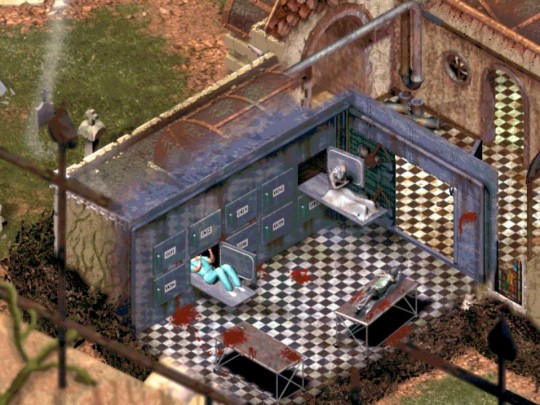
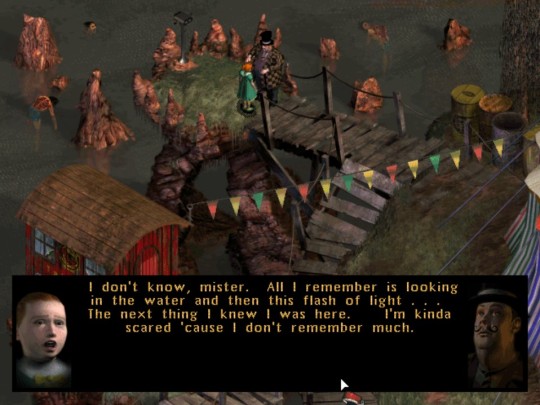
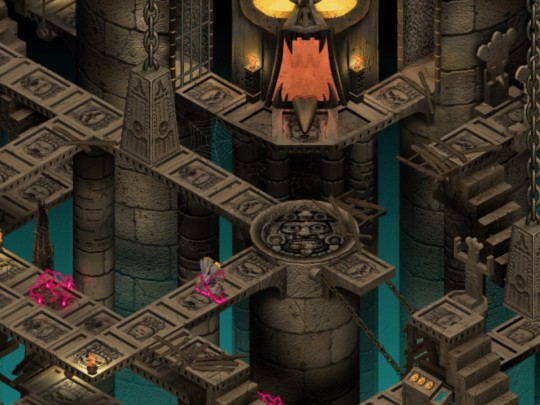
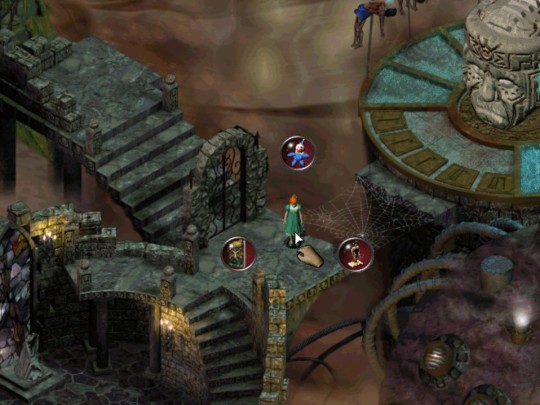
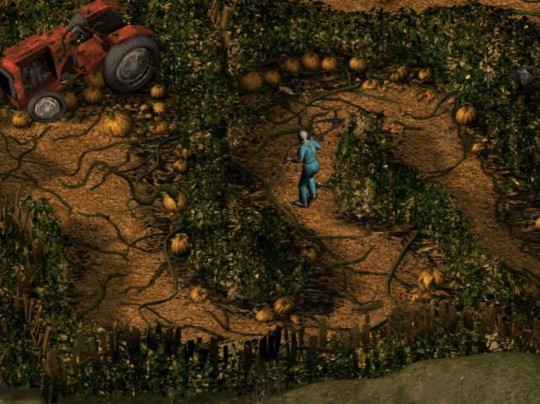
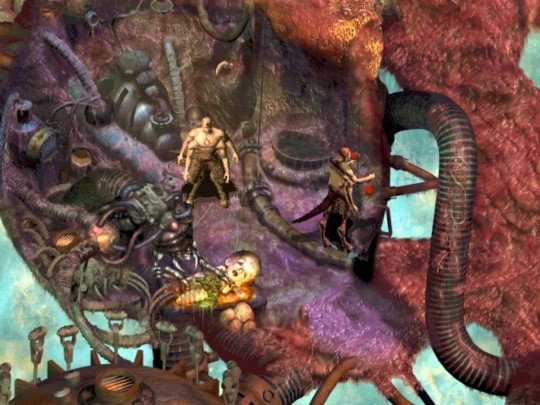
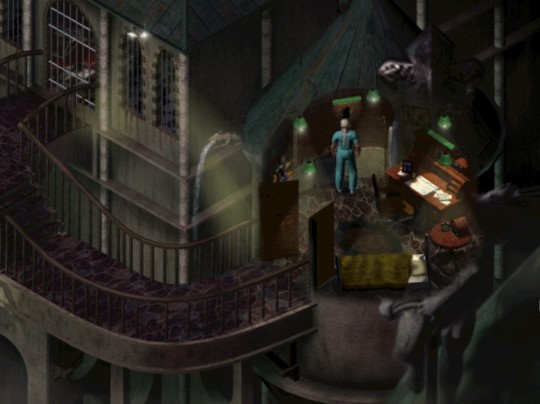
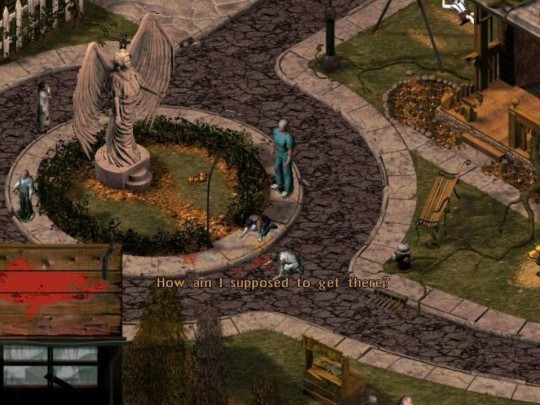
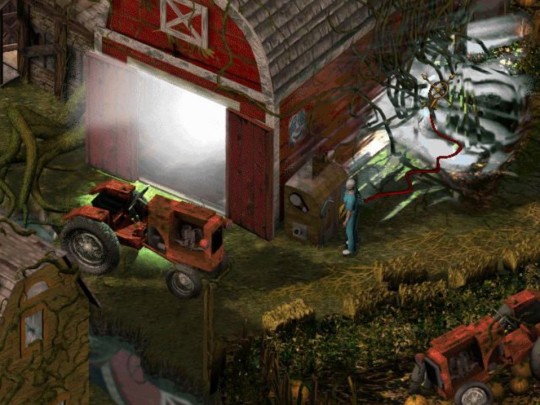
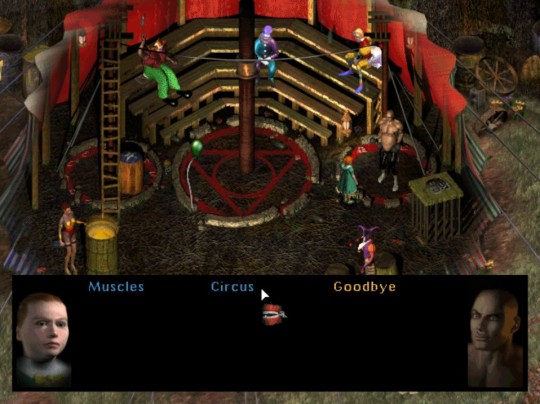
864.) Sanitarium
Release: April 28th, 1998 | GGF: Adventure, Point & Click, Story Rich, Psychological Horror, Puzzle, Mystery, Atmospheric | Developer(s): DreamForge Entertainment, Inc. | Publisher(s): American Softworks Corporation, Egmont Interactive GmbH, XS Games, LLC, DotEmu SAS | Platform(s): Windows (1998), Android (2015), iPad (2015), iPhone (2015)
2 notes
·
View notes
Text
https://en.wikipedia.org/wiki/Robert_A._Altman#BCCI_trial
From 1978 to 1982, Altman and Clifford represented a group of wealthy Arab businessmen, including members of the royal family from Abu Dhabi and Saudi Arabia in their efforts to acquire a multi-state bank holding company, Financial General Bankshares. The Arab investors used a British bank, Bank of Credit and Commerce International (BCCI) as their financial advisor in this transaction. Following the acquisition, Altman became President of Financial General which was renamed First American Corporation.[7][8]
In 1991, it was alleged that BCCI, the financial adviser to the Arab shareholders and their "communications link" had acquired by means of offshore loans that were in default, the shares of the Arab investors in First American. Questions were raised whether the Arab investors had falsely represented to bank regulators the true ownership of First American.[9] During the ensuing investigations, Altman and Clifford testified at length before Congress, federal and state grand juries, and the Federal Reserve. Audits of First American by the Federal Reserve, Office of the Comptroller, and state banking agencies confirmed that the bank had been operated under Altman's management without any BCCI influence.[10]
After the BCCI trial, Altman resumed his Washington, D.C. legal practice. In 1999, he co-founded ZeniMax Media with Bethesda Softworks founder Christopher Weaver as a new parent company of Bethesda.[16] Altman was brought in as CEO with Weaver serving as CTO.[17]
Altman served as ZeniMax Media's chief executive officer and chairman until his death.
https://en.wikipedia.org/wiki/Robert_Trump
He served on the board of directors for ZeniMax Media, parent company to Bethesda Softworks, a position he occupied from 1999[12] until his death in 2020.[13] During his tenure as a director, ZeniMax published series including Fallout, The Elder Scrolls, Doom, and Wolfenstein. His role at the company was highlighted by media outlets in the wake of the Parkland school shooting, when his brother linked video games to violence and subsequently met with various industry chiefs,[14][15] including Robert Altman, CEO of ZeniMax.[16] In addition to being a Board member at ZeniMax, Trump was also an investor in the company.[17]
some weird zenimax history nobody talks abt
40 notes
·
View notes
Photo
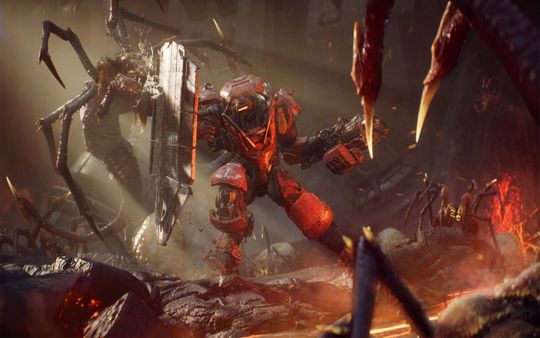
MICROSOFT DECIDED TO BUY ELECTRONIC ARTS
The American corporation Microsoft is not going to stop after the acquisition of the game company Bethesda, and will buy Electronic Arts next.
Daniel K or Knottian surprised gamers with fresh information on one of the forums. He heard that Microsoft is preparing to buy another large company. The acquisition will be at the same high level as the near-final purchase of ZeniMax Media, which includes Bethesda Softworks. Another insider King Ragnar decided to comment on these rumors. He doesn't know Knottian, but in recent months he has regularly heard about negotiations to buy another major company. Many players immediately decided that it is Electronic Arts.
King Ragnar said that the acquisition of Bethesda has been in preparation for about 3 years. For this reason, negotiations for the next purchase will also take a long time. He expects its completion only in 2022, but the official announcement is expected in the second half of 2021.
Some gamers recalled that a few days ago, respected journalist Brad Sams mentioned Microsoft in one of his articles. He claimed that company representatives met with some of the major figures in the gaming industry. One of the players asked Sam on Twitter if these meetings were related to rumors about the purchase of a large company. The journalist in response sent only a winking smile, which confirmed the guesses of gamers.
Many players believe that Microsoft is preparing to buy EA. Others speculate that Square Enix, SEGA or Capcom may also be among the candidates. Some gamers are also hoping for the acquisition of the Polish studio CD Projekt RED by the American corporation. After the unsuccessful launch of Cyberpunk 2077, the company's shares have fallen in value. Experts believe that now is the best time to buy this studio.
1 note
·
View note
Text
Blog Post 3
1) What is Participatory Culture:
According to Fuchs, “Participatory Culture is a term that is often used for designating the involvement of users, audiences, consumers and fans in the creation of culture, and content” (Fuchs 52). Participatory culture is also differently defined depending on which author’s concept of participatory culture we are discussing, as Clay Shirkey believed that the internet has resulted in a “wiring of humanity”, where our free time is essentially a pooled resource (Fuchs 53). This concept of our time spent online creating things as a form of labor is particularly interesting because of the implications of that labor being exploited by corporations such as YouTube or FaceBook, as many people are not being properly or equitably reimbursed for what they have produced, while these aforementioned corporations rake in enormous profits based off of their consumers.
2) What is Spreadable Media, and how can it benefit Corporate or Private Interests?
Spreadable media is media that is disseminated by consumers, usually through social media platforms. As most of these social media platforms are privately owned, this means that the media that is being spread is essentially the labor of an unpaid group of consumers, because it functions as free publicity and advertisement in the case of privately owned intellectual properties such as movies, TV shows, games and books. Products such as video games in particular are known for creating dedicated and loyal fanbases, who are willing to commit large amounts of time and labor to a franchise they enjoy, and in some cases even go far enough as to work on the game themselves through the creation of mods, which are essentially homemade and sometimes officially supported free content made by members of a game’s community, which are almost always free. There have been recent controversies about the rise of so-called “paid mods” in the gaming press, as publishers such as Bethesda Softworks have been attempting to create a system where modders can upload their work to an online platform from which users can purchase and download the community content. Much of the anger on the consumer side has focused on the idea of mods as a “labor of love”, something that a developer makes in order to enhance the game they enjoy. On the other side, mod development can often be time consuming, and because Bethesda is a company that is notorious for releasing unfinished games, their have even been accusations of “paid mods” being a front for software publishers to profit off of the work of community freelancers who are releasing mods to finish the game that the studio released prematurely.
3) Does the Internet really have a Participatory Culture?
Oftentimes, as in the case of my previous example with mods, spreadable content is officially supported by whichever social media platform it’s generated or posted on. Corporations, like Facebook and Google have begun to use their existence as private entities to crack down on certain types of content. (Fuchs 56). As much of our social media is run by private business, and the United States is a liberal society that hasn’t yet regulated private businesses on the internet has led to a large concentration of power in the hands of an increasingly elite group. Because of this, much of the democratic nature of social media platforms on the internet can be jeopardized, especially when it comes to free speech issues and fascist speakers who will claim their right to hate speech is the same as everyone’s right to free speech, and that for them to be silenced would be unequal treatment. In some cases, certain political speakers have been banned on social media platforms, most notably on twitter who permanently banned alt-right speakers Milo Yiannopolous and Alex Jones, along with groups such as the American Nazi Party.
4) Is Online Fascism Participatory Culture?
According to the reading, fascist communities do not seem to fit Jenkins’ concept of fandom’s and communities, and he has not seemed to investigate those communities so much. However, Jenkins does say that while fans may not necessarily be progressive, and that they have the potential to be active and “find the ability to question and rework the ideologies that dominate the mass culture” (Fuchs 60). The internet has been a platform for fascist groups however, and social media platforms such as reddit have become known as the home of alt-right and other far-right political activity on the internet. Many of these agitators actually operate on multiple websites, as users of reactionary subreddits such as r/The_Donald, a nominally pro-Donald Trump forum that is actually just a discussion room for xenophobes, are active on other websites such as 4chan or twitter, and openly coordinate their disinformation campaigns through outside communication channels such as Discord, a service that allows users to create public and private free text and voice chatrooms.
4 notes
·
View notes
Text
Sküljagger - Revolt of the Westicans
Sküljagger – Revolt of the Westicans
Developer: Realtime Associates Publisher: American Softworks Corporation Released 1992 Genre: Action
Sküljagger is a game that few remember but not because it is bad necessarily. The game doesn’t leave much of an impression. That shouldn’t be possible; a game about bubble gum chewing pirates fighting island natives doesn’t come along often, if at all. Yet here we are. Sküljagger: Revolt…
View On WordPress
0 notes
Text
Fallout 76 is shaping up to be Fallout with friends
WHITE SULPHER SPRINGS, W.Va. – I can think of no better place to have been given my first taste of Fallout 76, the latest entry in Bethesda Softworks’ blockbuster post-apocalyptic Fallout series, than The Greenbrier Resort in West Virginia.
Not only is the 250-year-old hotel property a featured location you can visit within the heart of the game’s sprawling free-to-roam map of the Appalachia (properly pronounced app-uh-latch-uh by locals, so I’ve learned) region, it’s also home to one of the most famous nuclear bunkers in the world. Built by the Eisenhower administration, the shelter sits under the west wing of the hotel and was designed to house 1,100 people – the whole of the U.S. Congress, including aids. It was kept in operational readiness for some three decades before being decommissioned in the early 1990s after an investigative journalist outed its existence.
After passing through a 25-tonne steel and concrete door that clanged shut to seal us in and walking through decontamination facilities that made me feel as though we were entering a concentration camp, the dozens of game journalists in attendance sat down for a press conference in an underground auditorium where the American government would have convened in the event of a nuclear war.
It was a bit eerie, to say the least.
Assassin's Creed Odyssey review: Come to tour picturesque Ancient Greece, stay to slay thousands
Super Mario Party review: Imaginative minigames, terrific co-op play and potential problems for people with pickle fingers
Marvel's Spider-Man review: An outstanding superhero action experience with good room to grow
Interestingly, though, it wasn’t the bunker but rather the resort itself that felt the most fitting representation of Fallout’s persistent narrative themes, which have always been concerned with some of the more peculiar particulars of American culture — capitalism, commercialism, militarism, optimism, exceptionalism. The resort, a retreat for America’s upper class for centuries (it’s hosted more than two dozen sitting presidents) is a socialist’s nightmare. Signs lure people to experience “living as few others have,” and arguments about American luxury cars dominate patrons’ conversations in the bar. When I entered my hotel room the TV was playing a never ending series of ads for the hotel’s impressive medical and plastic surgery facilities, which promise to make guests “look as young as they feel.” The resort actually played host to — I’m not making this up — something called the Old White Club up until just a few years ago.
And once I finally began playing Fallout 76, parts of the game felt like a perfect reflection of the deeply consumerist culture in which I was immersed at the resort. It’s set, as are all games in the series, within an alternate universe in which Americans embraced the great possibilities of science, futurism and nuclear power after the Second World War to a dangerous degree, making it easy for them to place their trust in powerful companies — like Nuka-Cola, makers of suspiciously efficacious soft drinks, and RobCo, manufacturers of all manner of helpful automatons — that promised better living through technology. It’s a culture even more obsessed with and accepting of invasive consumerism than the America of today.
Of course, the most recognizable of Fallout’s fictitious corporations is Vault-Tec, a private contractor hired by the U.S. military to design and create a series of enormous fallout shelters — or vaults — which also served as cover for some of the company’s shadier activities, including massive, involuntary and immoral experiments in human psychology. As in past games, the Vault-Tec logo and its cheery blonde Vault Boy mascot are found everywhere in Fallout 76, from your character’s Pip-Boy wrist computer to the automated camp construction system you take with you into the wasteland.
While other Fallout games are set 100 years or more after the nuclear war — which takes place in the latter half of the 21st century — Fallout 76 takes place just a couple of decades after the bombs have fallen. What that means is that the people of this world — including our character, who emerges from Vault-Tec’s Vault 76 at the game’s outset — still remember the world from before. How the pampered consumerists of Fallout’s fictional future American utopia adjust to the newly desolated world could make for some fascinating storytelling.
Complicating this possibility, though, is Fallout 76’s unique angle on the Fallout experience: It’s an online multiplayer game.
Now, before Fallout purists get up in arms about the series’ move away from a single-player experience, know that Fallout 76 is not a massively multiplayer online role-playing game with hundreds of players falling over each other. The number of players per server is capped at just 24, which means accidentally bumping into another player in the game’s huge world — which is four times that of Fallout 4 — should be a rare occurrence. One of the developers told me that there have been times when he’s played for so long without running into other people that he’s actually forgotten he was playing online. It supports typical multiplayer features, like player-versus-player skirmishes and party creation for taking on more difficult objectives as a group, but all of this is optional. You can block anyone and everyone on your server so that they can’t see or interact with you and play the entire game alone.
The phrase I kept hearing floating about throughout the preview event was “Fallout with friends,” suggesting that Fallout 76 plays almost exactly like any other Fallout game, except that you can have your friends join you, should you like.
However, one of the big differences from other Fallout adventures is that there aren’t any non-player human characters. That means no settlements, no quest givers, no random folks met on the road. If you see another human, it’s someone else’s avatar — another survivor from Vault 76.
If this seems odd, given that we know from other games plenty of people outside the bunkers survived, Bethesda assures us that this question is answered. In fact, it looks like the subject of what happened to the Appalachian locals who survived the war — and there were likely plenty, since West Virginia was spared a direct hit and is largely protected by mountains — will be crucial to the primary plot, which centres on following the trail of someone called the Overseer, the woman who ran Vault 76 and exited the bunker before the rest of its inhabitants on a mysterious mission.
So how are Bethesda’s writers telling a story without any human NPCs? It appears as though a lot of the exposition comes from what we find in the environment. Fallout has always been known to tell compelling stories through scavenged notes, computer terminal files, journals and holotape recordings, and these discoveries play an even bigger role in Fallout 76. World lore and tales of survival are waiting everywhere to be discovered, providing players with engaging anecdotes, side-quests, crafting recipes and more. The amount of narrative material I discovered during the three hours I spent playing has left me with full confidence that the franchise’s focus on captivating — and often humourous — storytelling has survived the transition to an online world fully intact.
For me — and I’m sure plenty of others who have been with the franchise since its beginning more than two decades ago — this is all I really needed to know to stoke my interest enough to give Fallout 76 a shot when it launches on November 14.
It is assuredly an online game, but from what I’ve seen it manages to maintain the atmosphere of its single-player roots in important ways that other franchises that have migrated to multiplayer — including Bethesda’s own Elder Scrolls Online — have not. Combat, crafting, character development, exploration, and, most importantly, the sort of bold storytelling that isn’t afraid to place America’s obsessions under a microscope have all survived the transition such that they are not just familiar but welcomingly intuitive.
In other words, it feels like Fallout, and now you can play with your friends.
from Financial Post https://ift.tt/2RCpW51
via IFTTT Blogger Mortgage
Tumblr Mortgage
Evernote Mortgage
Wordpress Mortgage
href="https://www.diigo.com/user/gelsi11">Diigo Mortgage
0 notes
Text
AGEGAME PORTAL
New Post has been published on https://agegame.org/sony-bolee-60-igr-dlia-shlema-playstation-vr-vyidyt-v-2017-om-i-nachale-2018-goda/
Sony: более 60 игр для шлема PlayStation VR выйдут в 2017-ом и начале 2018 года
Sony активно развивает свои игровые предложения в области виртуальной реальности. Уже сегодня доступно свыше 100 различных проектов для шлема PlayStation VR, а вскоре их количество увеличится в полтора раза. Многие из игр, которые представлены в списке, уже наверняка знакомы читателем.
В частности, речь идёт о TES V: Skyrim, Doom и Fallout 4 от компании Bethesda Softworks наряду с другими анонсированными прежде окружениями вроде Golem, Pixeljunk VR, Bravo Team, No Heroes Allowed, Ark Park и так далее. Хотя 2017 год скоро останется в прошлом, во время зимних праздников выбор новых VR-игр для PS4 будет обширный. Да и начало 2018 года не отличается дефицитом. Кстати, в декабре пройдёт мероприятие Sony PlayStation Experience, так что наверняка будут анонсированы и другие проекты.
Ещё �� самом начале лета Sony сообщила, что популярность её шлема PS VR оказалась весьма высока и на тот момент продажи превысили миллион единиц. Более актуальные показатели успехов шлема наверняка будут обнародованы 31 октября, в очередном финансовом отчёте японской компании.
youtube
Итак, в 2017 году PlayStation VR ждут следующие игры:
Anamorphine;
Ark Park;
Blade And Soul: Table Arena – Ncsoft Corporation;
Brain Voyagers;
Bravo Team;
CoolpaintVR;
CubeWorks;
DWVR;
Doom VFR;
DragonBlast VR;
Dream Angling;
Drunkn Bar Fight;
End Space;
Fishing Master;
Flatline: Experience the Other Side;
Ghosts in the Toybox;
Gran Turismo Sport;
Gunheart – Drifter Entertainment;
Hex Tunnel;
Hopalong: The Badlands;
Justice League VR;
Megaton Rainfall;
Monster of the Deep: Final Fantasy XV;
Moss;
No Heroes Allowed!;
Nothin’ But Net;
Obduction;
Pixeljunk VR: Dead Hungry;
Quar Infernal Machines;
RadianVR;
Rec Room;
Run Dorothy Run;
Sculptrvr;
Serious Soccer;
Shooty Fruitie;
Snow Fortress;
Stardrone VR;
Stifled;
Super Amazeballs;
Survios;
The Elder Scrolls 5: Skyrim VR;
The Inpatient;
The Rabbit Hole;
VR Apocalypse;
Virtual Engagement Confronting Fear.
В начале 2018 года игроки могут рассчитывать на немалое количество VR-приключений:
Alvo;
Ariel;
Blasters of the Universe;
Chainman;
Cold Iron;
Dead Secret;
Dragonflight VR;
Drone Fighters;
Dungeon Chess;
End of the Beginning;
Golem;
Knockout League;
Penn & Teller VR: Frankly Unfair, Unkind, Unnecessary and Underhanded (including Desert Bus);
Pixel Ripped 1989;
The American Dream;
Torn;
Xing The Land Beyond.
В честь первой годовщины PlayStation VR президент и исполнительный директор Sony Interactive Entertainment America Шон Лейден (Shawn Layden) отметил: «„Что же будет дальше?“ — спросим снова. Ответ прост: нечто удивительное! Мы хотим стать вашими проводниками. Готовы ли вы отправиться в путь?».
VG247
0 notes
Text

USA 1997
#USA1997#ASC GAMES#AMERICAN SOFTWORKS CORPORATION#GREMLIN GRAPHICS#ACTION#RACING#PS1#UNRELEASED#IBM#TNN MOTOR SPORTS HARDCORE 2#TNN MOTOR SPORTS HARDCORE TR
21 notes
·
View notes
Text
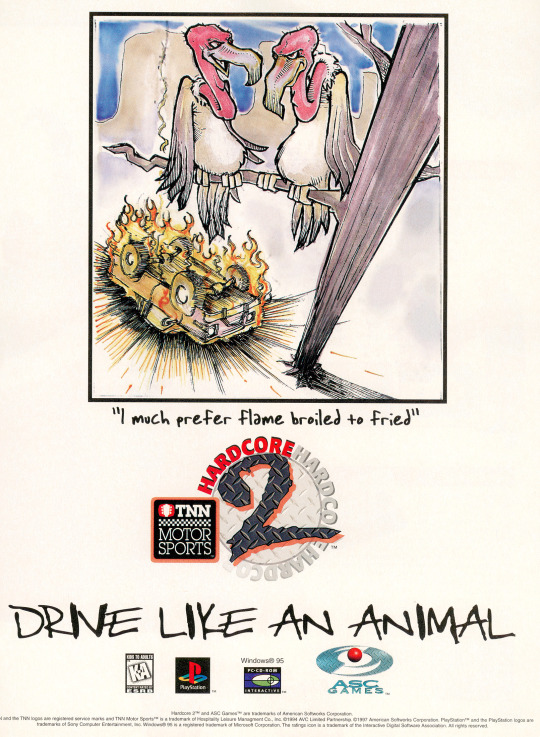
USA 1997
#USA1997#ASC GAMES#AMERICAN SOFTWORKS CORPORATION#GREMLIN GRAPHICS#ACTION#RACING#PS1#UNRELEASED#IBM#TNN MOTOR SPORTS HARDCORE 2#TNN MOTOR SPORTS HARDCORE TR
19 notes
·
View notes
Text
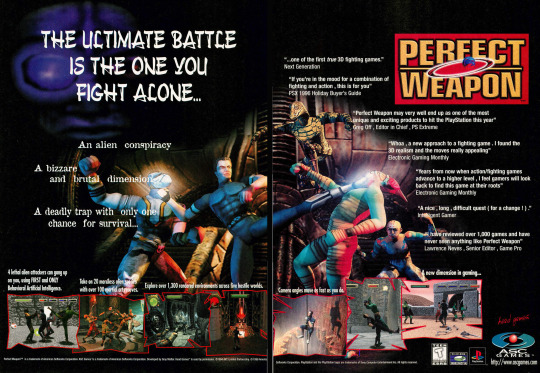
USA 1997
10 notes
·
View notes
Text
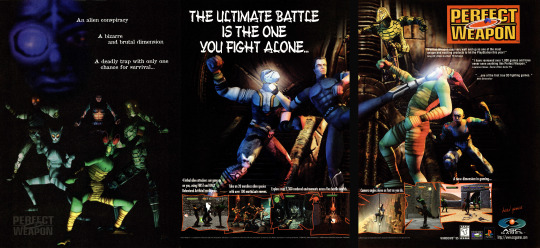
USA 1997
8 notes
·
View notes
Photo
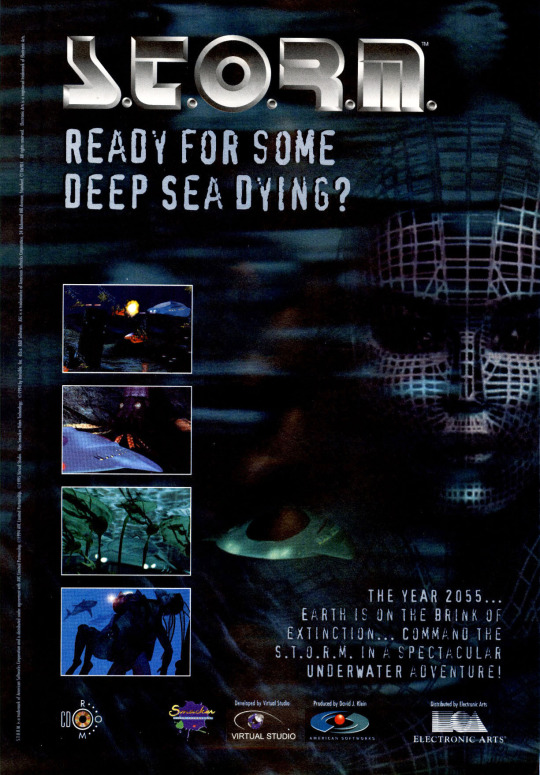
UK 1996
107 notes
·
View notes